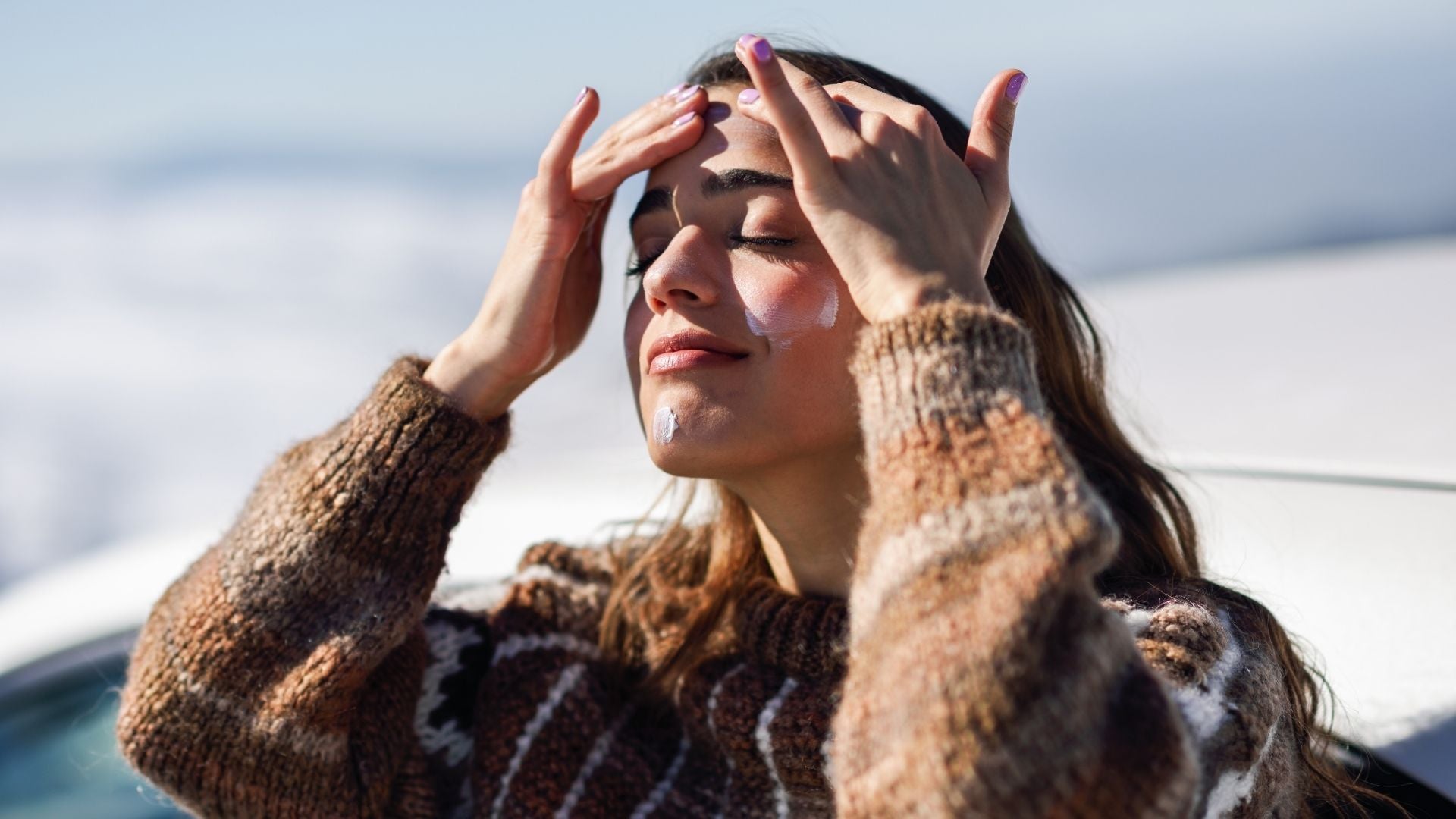
It's official: winter is not far away, and it many parts of the country, it feels like it's already here. The air is getting chilly, the sky is getting cloudy, and your beach wear is already gathering dust. It's the perfect time of year to ease up on the sunscreen... right?
Wrong. Don't let the grey skies fool you: even though UV-indexes go down, you absolutely need to be wearing sunscreen in winter, because no visible sunshine doesn't mean no UV rays, particularly in Australia!
Ultraviolet (UV) rays from the sun don't go away just because it's cooler outside. In fact, temperature doesn't affect UV rays at all – which means that painful sunburn and even skin cancer are still serious risks in the winter months.
We're here to break down how that works and why it matters to you. Keep reading and we'll tell you everything you need to know to stay sun-safe in winter...
How Do UV Rays Work?
UV rays from the sun can do some serious damage to your skin. Without the right protection, UV exposure can cause skin blemishes, painful sunburn, and even cancer.
It gets worse. The damage your skin sustains from UV rays is cumulative, meaning that it adds up over time. Enough exposure to UV rays, and your skin can sustain permanent damage.
The sun actually produces two types of UV radiation – UVA and UVB. But what's the difference between them?
UVA vs UVB
Ultraviolet A rays are sometimes called "longwave" rays, and you probably know them as the rays that produce your beach-perfect tan. If you aren't careful, though, UVA rays can also cause dark spots, wrinkles and skin cancers – some of the most common cancers in Australia.
UVA rays can penetrate both glass and clouds, so an overcast day won't do much to protect your skin. That's why you need to take steps to protect yourself from the sun, even in winter.
UVB rays, also known as "shortwave" rays, have a harder time penetrating clouds and glass than UVA. That doesn't make them any less dangerous, though! Whatever the weather, they can still cause skin redness and painful sunburn.
And in case you were thinking of hitting the slopes while it's cooler outside, UVB rays can reflect off snow and ice. So whatever the weather and whatever the temperature, you still need to think about how to protect your skin.
Why Wear Sunscreen in Winter?
Even in summer, wearing sunscreen every day can feel like a chore. But dermatologists and skincare experts agree, that daily sunscreen use protects against sun damage, preventing issues that can harm your skin.
In fact, because it's no longer hot outside, you may be at greater risk of becoming complacent – and when you're complacent, you don't protect yourself as carefully as you should.

Say No to Skin Cancer
If you don't look after your skin, the gorgeous weather here in Australia can come at a terrible price. We have one of the highest rates of skin cancer in the world, and melanoma is often referred to as our national cancer.
And since UV rays don't take time off for the winter, you can't afford to take a break from your daily sunscreen routine.
Fortunately, regular sunscreen application is an easy way to lower your risk of skin cancer. Whatever the weather, apply sunscreen before you head outside.
Stop Painful Sunburn
Sunburn is caused by UV rays, and it can do some serious damage to your skin's moisture barrier. What's more, if you get sunburned a lot, that damage will start to add up, increasing your risk of skin cancer and other serious complications.
In the short term, though, sunburn can really hurt. The moisture barrier keeps your skin healthy and hydrated, so any exposure can leave your skin red and sore.
A cloudy day won't stop UV radiation. Wear sunscreen, and your day outdoors won't come with any painful consequences for your skin. If you do end up burnt, treat it right away with an aloe vera gel to try and avoid prolonged pain, dehydration and damage.
Wipe Out Windburn
While it isn't strictly a form of sun damage, there's no denying that windburn can be just as miserable as sunburn. It's a painful skin inflammation that comes with exposure to windy environments.
Windburn develops when cold, dry air dries out your skin, so it's especially common in winter. Using a good moisturiser and a gentle, natural sunscreen can go a long way to stopping windburn in its tracks.
Protect More Than Your Skin
Whatever the weather, we're here to protect both you and our planet.
With our sun care range, you can reap the benefits of daily sun protection and daily skin hydration while still being kind to your skin. All our products are environmentally safe, free of harmful ingredients that can pollute the ocean and put your health at risk.
What's more, we take our ethical responsibilities seriously. Every purchase you make with us helps protect our reefs and preserve biodiversity in Australia and around the world.
Sunscreen pollution is part of the problem for these crucial ecosystems, and we're committed to building a solution.
Stay Sun Safe All Year
Wearing sunscreen in winter doesn't have to be a drag. In fact, it can be a treat for your skin! Our products are luxurious and lightly scented, built to nourish your skin and protect against all forms of sun damage.
If you're vegan, or if your sensitive skin needs a little extra care, we have options to keep you sun-safe no matter the season. And our commitment to protecting the environment means you can always lotion up with pride.
Check out our full range of reef-friendly sun care products today, and feel the difference whatever the weather!


Comments (0)
Back to Blog